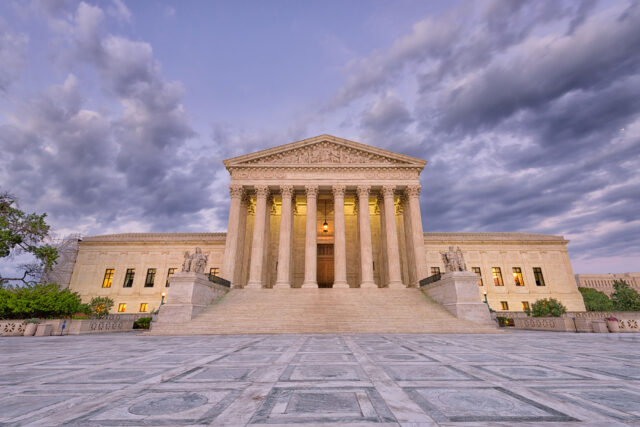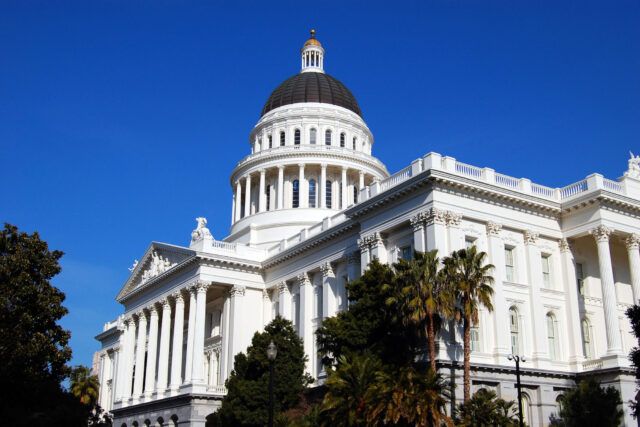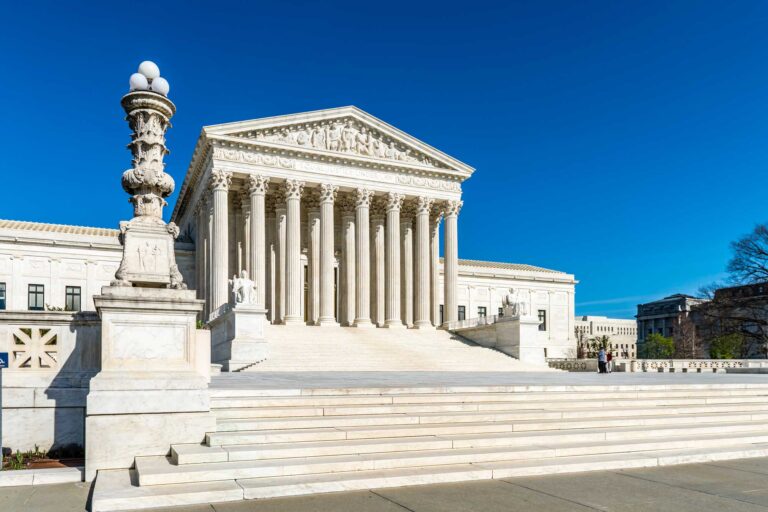The Supreme Court of the United States has been in the spotlight over the last year after issuing a series of controversial decisions, and Californians’ views are at odds with some of the most high profile and contentious rulings, according to PPIC surveys conducted in February 2023 and July 2022. Among others, these rulings include the decision that ended the constitutional right to abortion—last July 68% of Californians disapproved of the court overturning Roe v Wade. Californians also largely disagree with efforts to protect gun ownership—in February, 65% of adults stated that controlling gun ownership was more important than protecting gun ownership rights. This opinion puts Californians at odds with the court’s decision in New York State Rifle & Pistol Association, Inc. v Bruen.
This growing divide has resulted in a steep drop—and record low—in the court’s approval ratings. Thirty-seven percent of adults and 36% of likely voters approve of the way the Supreme Court is handling its job, while majorities disapprove—59% of adults and 63% of likely voters. The shift represents a 20 percentage-point drop in approval among all adults and a 17 percentage-point drop among likely voters since PPIC last asked this question in 2017, when the ideological makeup of the justices was evenly balanced (currently, conservative-leaning justices outnumber liberal-leaning justices six to three).
Today, majorities across partisan, demographic, and regional groups disapprove of the court, with the exceptions of Republicans (62% approve, 37% disapprove); adults with high school education only are divided (46% approve, 49% disapprove). Further, in a state where Democrats outnumber Republicans nearly two to one, 52% of adults and 58% of likely voters think the current court is too conservative—an increase of 20+ points from 2017 (24% adults, 27% likely voters). Roughly three in ten (30% adults, 28% likely voters) think the ideological balance of the court is about right, while fewer (15% adults, 12% likely voters) say it is too liberal.
Given that most Californians are unhappy with many recent rulings, how do they feel about term limits for Supreme Court justices? Overwhelming majorities of adults (71%) and likely voters (75%) support creating term limits for justices, while about one in four oppose doing so (27% adults, 24% likely voters). This is one question where we find partisans in agreement: solid majorities of Democrats, Republicans, and independents support term limits for Supreme Court justices—although Democrats and independents are much more likely than Republicans to be supportive, as are solid majorities across all regions and demographic groups.
Although none of the nine justices is poised to retire anytime soon, there is always the potential that a new justice could be confirmed during the current or next administration, thus altering the current ideological makeup of the court and impacting broader judicial matters. PPIC will continue to monitor opinions as the US Supreme Court hears new cases—including President Biden’s student loan forgiveness plan—and as we approach the 2024 presidential election.
Topics
abortion approval ratings guns Political Landscape Statewide Survey student loans US Supreme Court votersLearn More

A Broad Range of Californians Oppose Overturning Roe v. Wade

Californians Prioritize Controlling Gun Ownership

What Student Debt Relief Means for Californians


